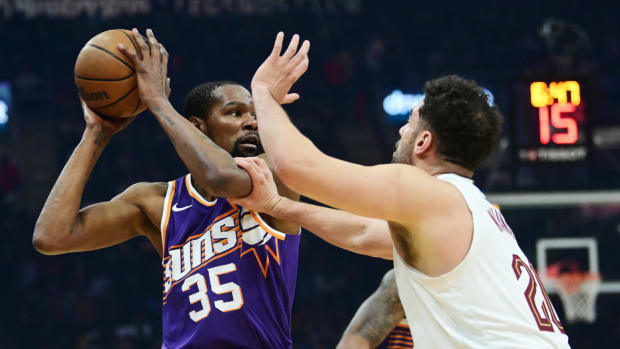Basic sports terminology you should know before placing a bet
Sports betting is becoming almost a global pastime. With the advent of online sports betting, more and more people are choosing to try their luck in wedging on sport events.
It is true that in the majority of the Muslim countries, sports betting – both land-based and online - is forbidden. Throughout most of the United States, likewise, sports betting is made illegal. But in Europe, people enjoy betting on sport matches so much that many of them become addicted to it. Thus, in the United Kingdom, sports betting is so popular that almost 2 million people there are classified as problem gamblers or as being at risk of addiction.
Forty-one million visitors flock to Nevada each year to try their hand at gambling and bet on their favorite sport games. The amount of money people annually invest in sport wagering is staggering. According to the latest statistics, around $70 billion is bet on sports worldwide; and these numbers are only approximate, since some of sport betting is done illegally.
In the USA, more than $3 billion is wagered on sport events, with $1.3 billion of this amount placed on American football. The statistics also show that particularly intense betting on American football becomes during Super Bowl: about $99 million gets invested in this sport in America alone.
It is also estimated that more than 200 million people wager on Super Bowl in the world, betting more than $8 billion on its winner. In the UK, sport lovers do not wait for specific events to take place but eagerly bet throughout a year. Their passion for betting makes Britons the leader among European countries engaged in sports betting. In Asia, Japan tops the list.
Yet sports betting is not a modern-day addiction, though the emergence of online betting undoubtedly made wagering easier and more popular. People had figured out that they could earn money on sports events in ancient Rome, where chariot races, animal fights, and contests between gladiators had been viewed as sources of enrichment.
The Romans infected Britons with love for sport betting, who, in their turn, spread it to the rest of Europe. For several centuries, Europeans tried to make money on cockfighting, bearbaiting, wrestling, and foot races. Horse races opened up a new venue for financial improvement, when knights came back from crusades with Arab stallions. Since then, betting on horses has been one of the most lucrative spectator sports, bringing to races’ organizers billions of dollars every year.
In the nineteenth and twentieth centuries, when such sports as rugby, football, and cricket became fashionable, people began to bet on entire teams. Sophisticated modern technologies and the emergence of online betting websites added to the popularity of sports wagering in our times. Now there is a plethora of bookmakers’ websites on the internet that invite people to place money on sport events and explain what betting strategies they should use to make a profit. Totesport is one of such bookmakers that not only matches people’s first bet with a free bet but also doubles their first price, when their player scores the first goal of the match.
If you are a novice in sports betting, read the paragraphs below. In what remains, we are elaborating on the meaning of sports betting. We are also providing some necessary terminology that you can learn to start benefiting materially from watching sport events.
Although lately sports betting has been extrapolated to include election, beauty contests, and reality shows, it primarily involves making predictions about sport events and placing a wager on their outcome to win money. Sports on which people bet more readily are football, basketball, hockey, boxing, rugby, horse racing, car races, tennis, golf, and cricket, among others. There are two parties engaged in betting: one places wagers, the other helps do so. Those who bet are called bettors in the USA and punters in the UK. Those who assist bettors and punters are called bookmakers, bookies, sportsbooks.
They can also be referred to as betting agencies or betting exchanges. The root “book” in the words “bookmakers,” “bookies,” and “sportsbooks” refers to the former practice of wage brokers to write down details on wagers placed through their services.
Despite this shared morphology, there is a division of labor between bookmakers, bookies, and sportsbooks. Bookmakers and sportsbooks, for example, cover different sport events.
At sportsbooks, people bet on football, basketball, hockey, golf, rugby, and tennis. Bookmakers allow to place wagers on the same sports and on racing to boot. Racing sports that bookmakers include in their services are horses, greyhounds, or harness racing, though in some countries you can bet even on zebras, ostriches, camels, pigs, and mice. Bookmakers’ odds for racing are usually written in a racebook kept in a section separate from other sports.
There is also a difference between sportsbooks and bookies. The former require money up-front for placing bets. Bookies, by contrast, do not ask anyone to pay up-front but take money only from those who lose it. Seemingly more convenient, bookies’ practice is more dangerous, because it seduces people into playing more, which is often equivalent to getting into big debts. Bookies also differ from oddsmakers.
However interrelated their functions are in the betting process, bookies and oddsmakers perform different actions. The latter study players and games’ conditions. After this, they set betting lines, including money lines, point spreads, and game totals, which they then give to bookies. When they receive the betting lines from oddsmakers, bookies offer bets on these odds, making necessary adjustments designed to bring more profits to the betting house.
Bookmakers are also unlike betting exchanges in their different approaches to betting on outcomes. When people wager on a specific outcome, they in effect support this outcome.
For instance, if they bet on the Ohio State Buckeyes to beat the Michigan Wolverines, they back the Buckeyes, predicting their victory. Bookmakers allow bettors or punters only to back outcomes. Betting exchanges, in contrast, let them bet for and against outcomes. Wagers placed against the outcome are called a “lay bet.”
That is, people can lay a bet against the Michigan Wolverines’ victory. In this case, they receive money, if the Michigan Wolverines are outperformed by the Buckeyes. In the event of the Buckeyes’ defeat, they lose money. Multiple outcomes can be grouped together to create accumulators, a practice highly widespread in sports betting. Unlike other services, bookmakers also often stream sport events live.
These are only several sports betting terms you should know before placing a bet on a game or match. Learning betting strategies is also indispensable, if you want to reap handsome profits while watching your favorite sports.




